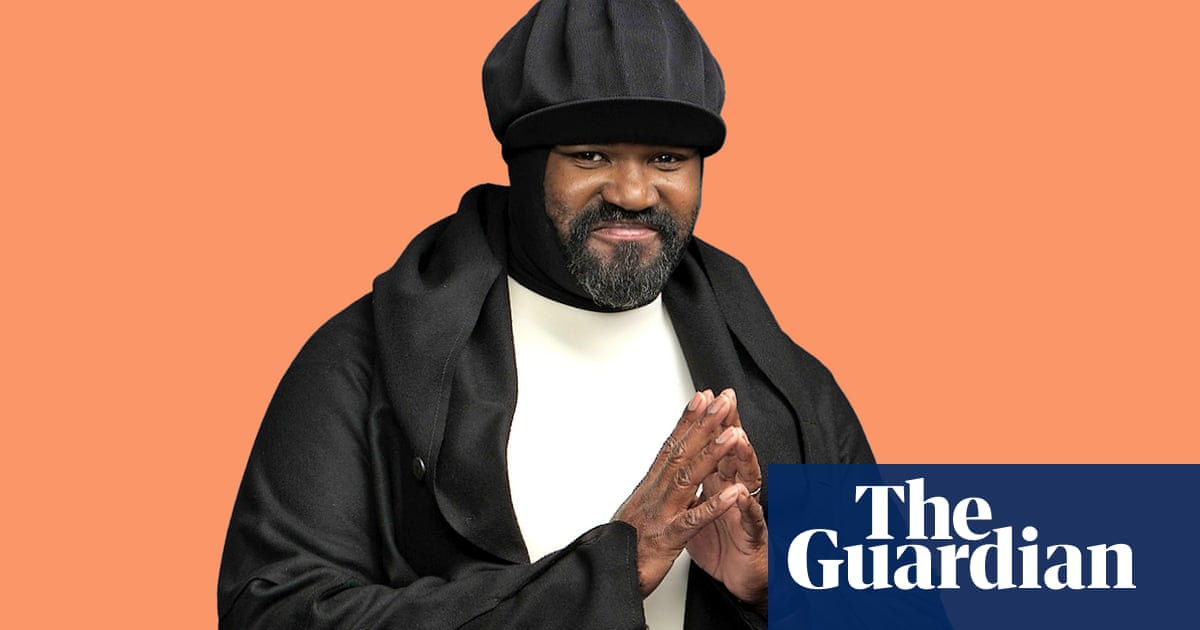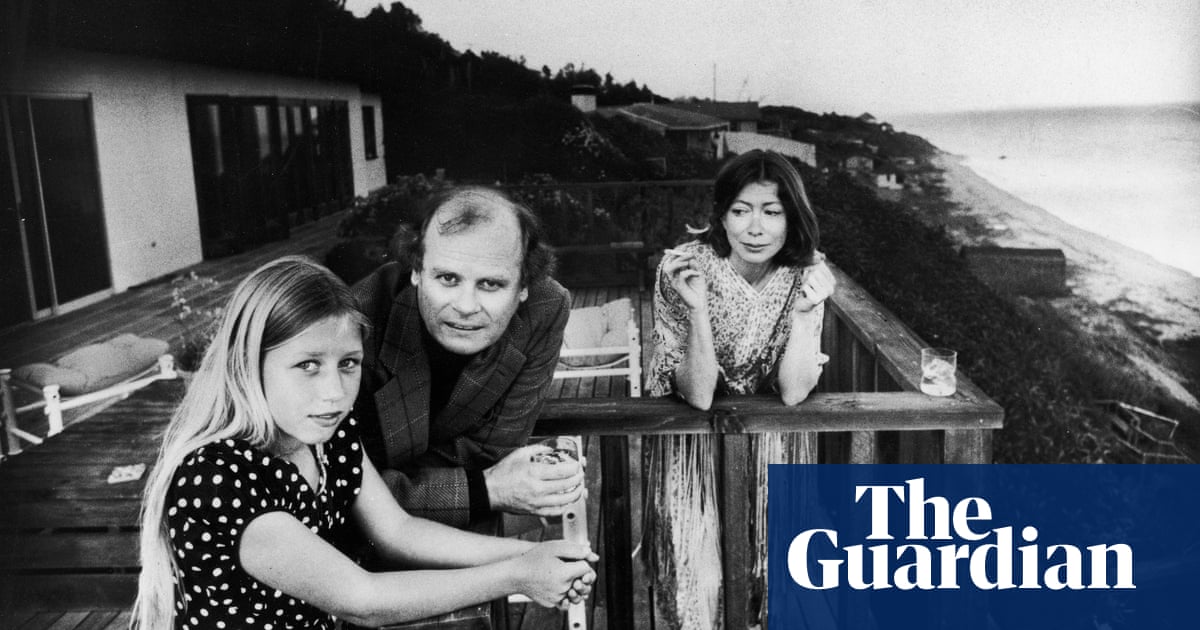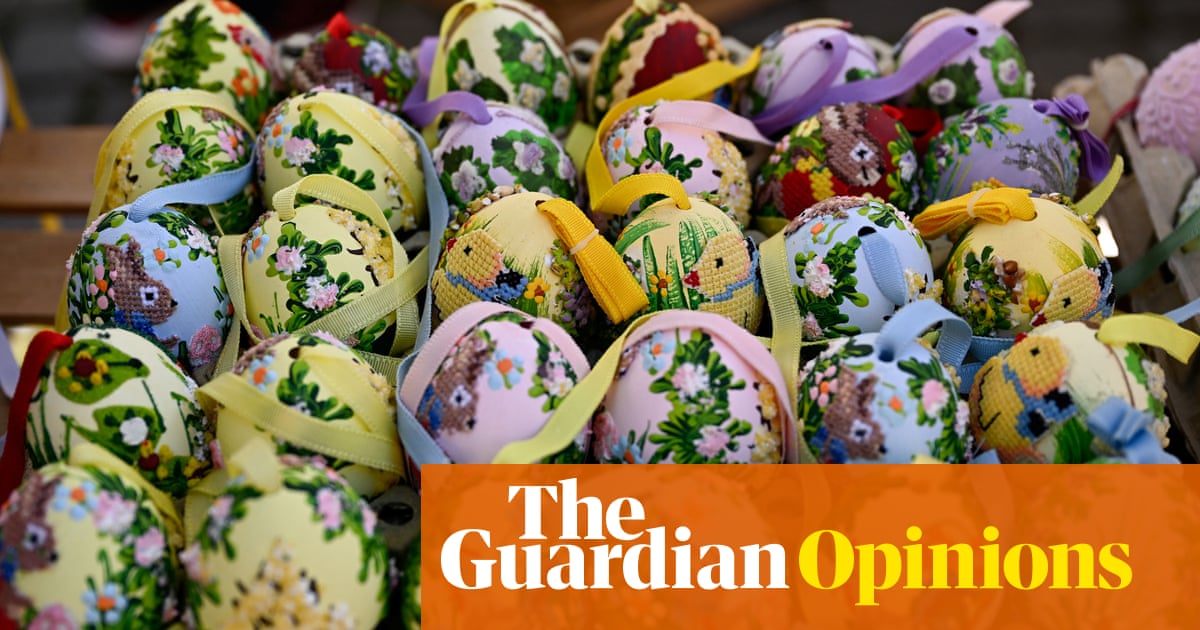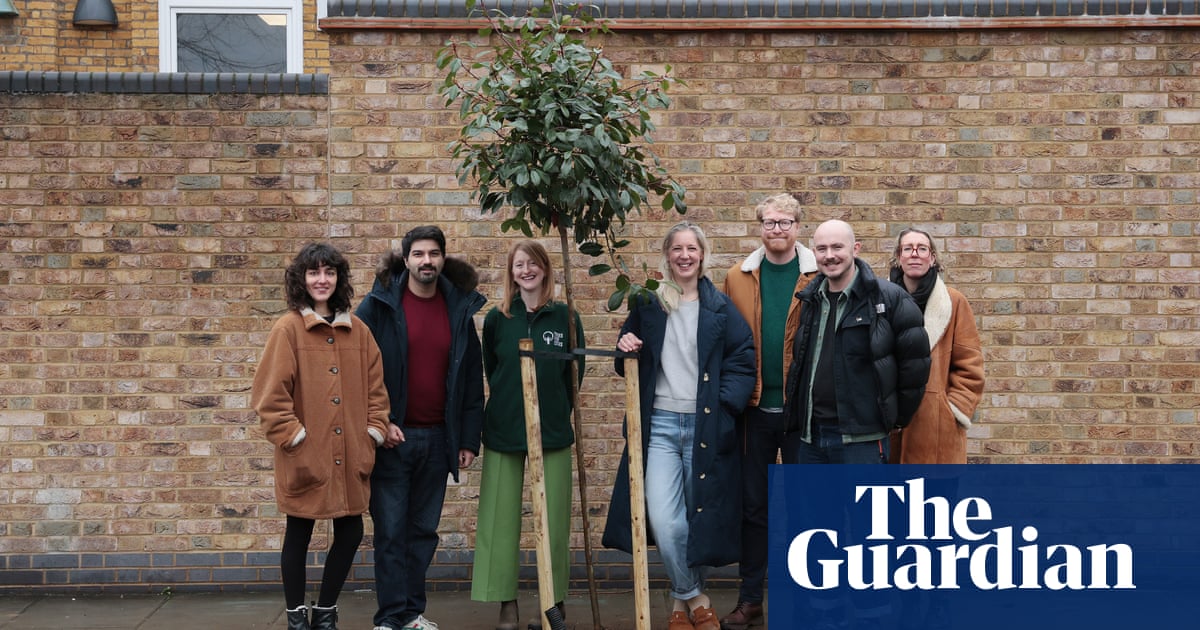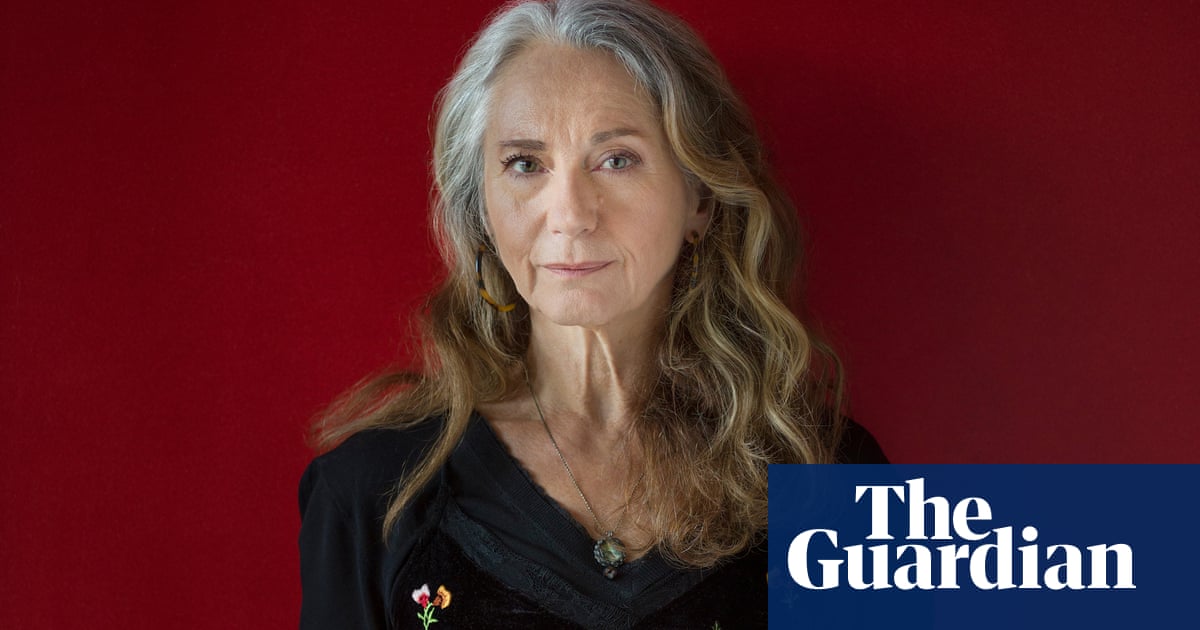When Paul Adam sees a long queue forming in front of his patisserie in the northern suburbs of Sydney, “That’s when I know I’m going to start working hard,” he says. In the weeks since one of his cakes went viral across several Chinese social media platforms, that has been nearly every day.
The gluten-free hazelnut, meringue and chocolate mousse cake, with lorikeets stencilled in icing sugar on top, is, by Adam’s estimation, “only a cake” but it seems to mean much more to the customers queuing for it, some of whom have travelled from interstate, or overseas.
The day Guardian Australia visited Du Plessy Pralin & Otello in West Pymble, Hong Kong resident Faye Chui told us trying the cake was one of the main reasons she chose to visit Sydney, alongside the Royal Easter Show.
The cake’s popularity has surprised Max Li, the vlogger who made it famous. “My channel has helped boost some businesses before but nothing quite like this,” he tells Guardian Australia via text message.
Adam increased his production from about 100 cakes a week to 150 cakes a day to keep up with demand but still sends some customers away empty-handed. He says customers are understanding when he runs out: “They say, that’s OK, I’ll try again tomorrow.”

On Rednote, BiliBili and Weibo, the dessert has been nicknamed “old baby cake”. This moniker does not come from the cake’s inherent qualities, although it earned the high praise “not too sweet”. “Old baby” describes the woman who introduced China’s netizens to the cake – an English teacher and Otello regular named Margie.
On a train ride home from Bowral, Margie struck up a conversation with Li. In a video of the encounter posted by Li, who has 1.5 million followers on Rednote, Margie glances dismissively at Li’s box of pastries and proffers Otello’s cakes as a superior alternative. From there, a friendship was formed, followed by an outing to Adam’s patisserie.
“Viewers see Margie as someone with strong values, a zest for life, and a great sense of humor,” Li says. “One of her quotes really resonated with a lot of people and even helped ease some of their anxiety: ‘Life is too short not to eat and drink well.’”
“Old baby” is a term of endearment Margie has embraced. Over text message, she says she considers it a compliment. Li says that on Chinese social media, “old baby” is “kind of like saying someone is ‘young at heart’ but with a cute twist”.
Margie agrees: “Yes, I am older and still have youthful energy.”
Li says meeting Margie was “one of the luckiest things that’s ever happened to me”. The pair have now made several videos together. In one, Li refers to Margie as his Australian grandma. “Margie and I have developed a really special friendship … We’re from different countries, different generations, and yet we randomly met on a train and started chatting.”
Margie says she and Li “share a philosophy that food is the passport to our world”.

She speaks English clearly and slowly in Li’s videos, which is something his audience appreciates. “Many Chinese viewers have messaged me asking if I could include both Chinese and English subtitles in our videos,” he says. “They find it helpful ... So in that sense, her teaching spirit is still very much alive — just with a new audience.”
Margie, who also teaches English to refugees, says she feels proud that after decades of teaching, she can inspire people to learn.
While Margie and Li’s dynamic is certainly an element of old baby cake’s appeal, Adam is also part of the package. By watching him, “many Chinese audiences felt the warmth and hospitality of Australia,” Li says. “On one hand, they were curious: how good must this cake be if a 70-something local lady couldn’t stop praising it? On the other hand, they genuinely wanted to support someone as kind-hearted as Paul.”

The explosion in interest has been a wild ride for Adam. The rest of the patisserie’s business had to be put on hold, he says, because “everybody wants this one cake”.
Eventually, he realised meeting demand for old baby cakes would come at the expense of serving his regular customers. He decided to stop making the cake for a period, and asked Li to tell his audience to stop coming, so the patisserie can get through Easter and Mother’s Day orders.
Li respects Adam’s decision. “Even when … he had the chance to make a lot more money, he didn’t forget about his local community.”
Li’s followers respected it too, he says, though sometimes a customer misses the notice about the pause. If someone comes from interstate or overseas in search of the cake, Adam still rushes an order.
Adam says one man asked for the cake as a proposal gift for his girlfriend. “So I gave him a box of chocolates,” Adam says. “I said to him: ‘If she says yes, give her the chocolates. If she says no, you eat the chocolates.’”
The viral cake has been a turning point in Li’s career. “What happened with Paul and Margie made me realise how powerful these small, genuine moments can be,” he says. “They’re not just about food, but about kindness, curiosity, and human connection across cultures.”
While Margie finds the attention she is receiving “somewhat daunting”, she says it has added an intriguing dimension to her life. “It’s another life adventure and I love adventure.”

.png) 1 day ago
9
1 day ago
9

